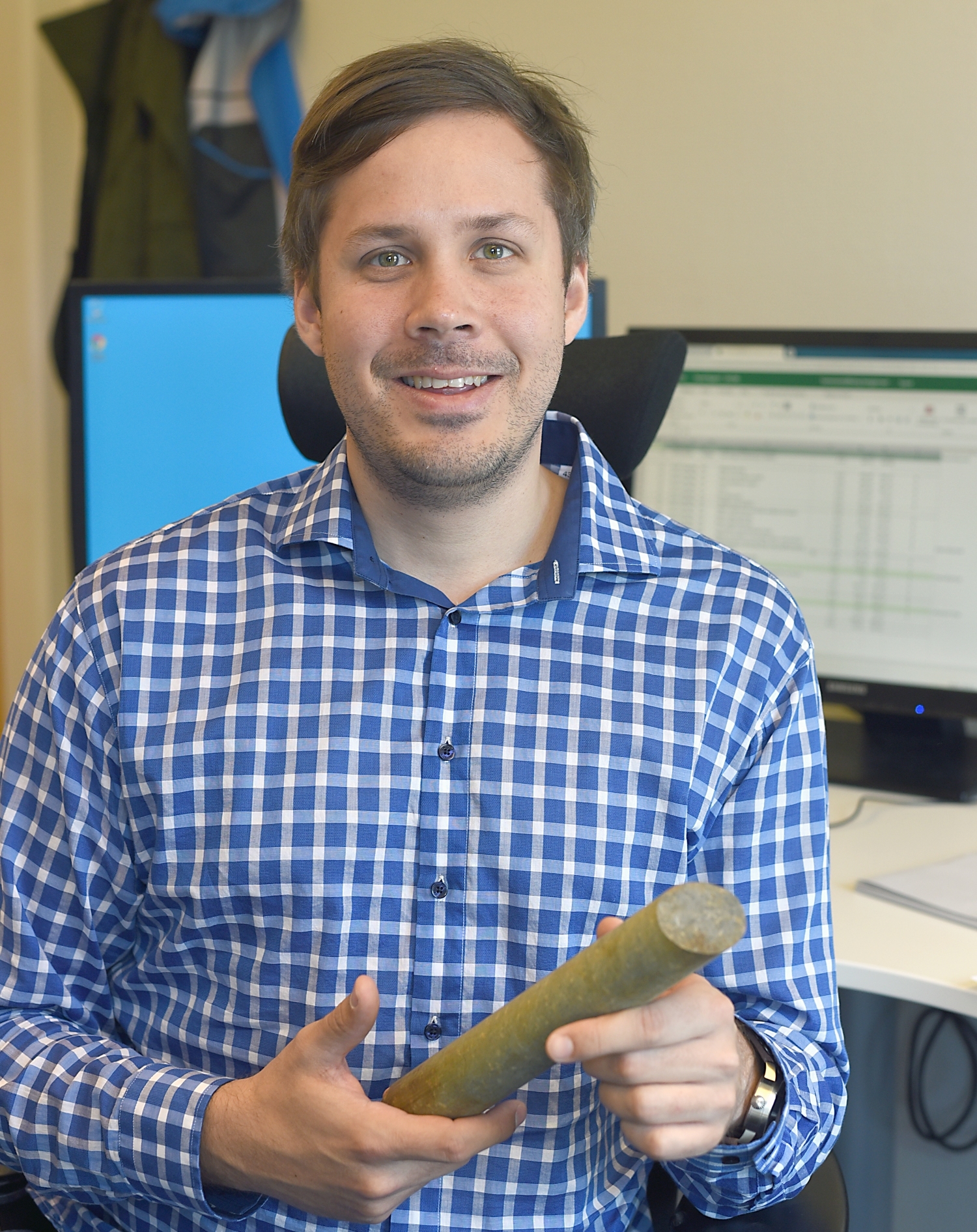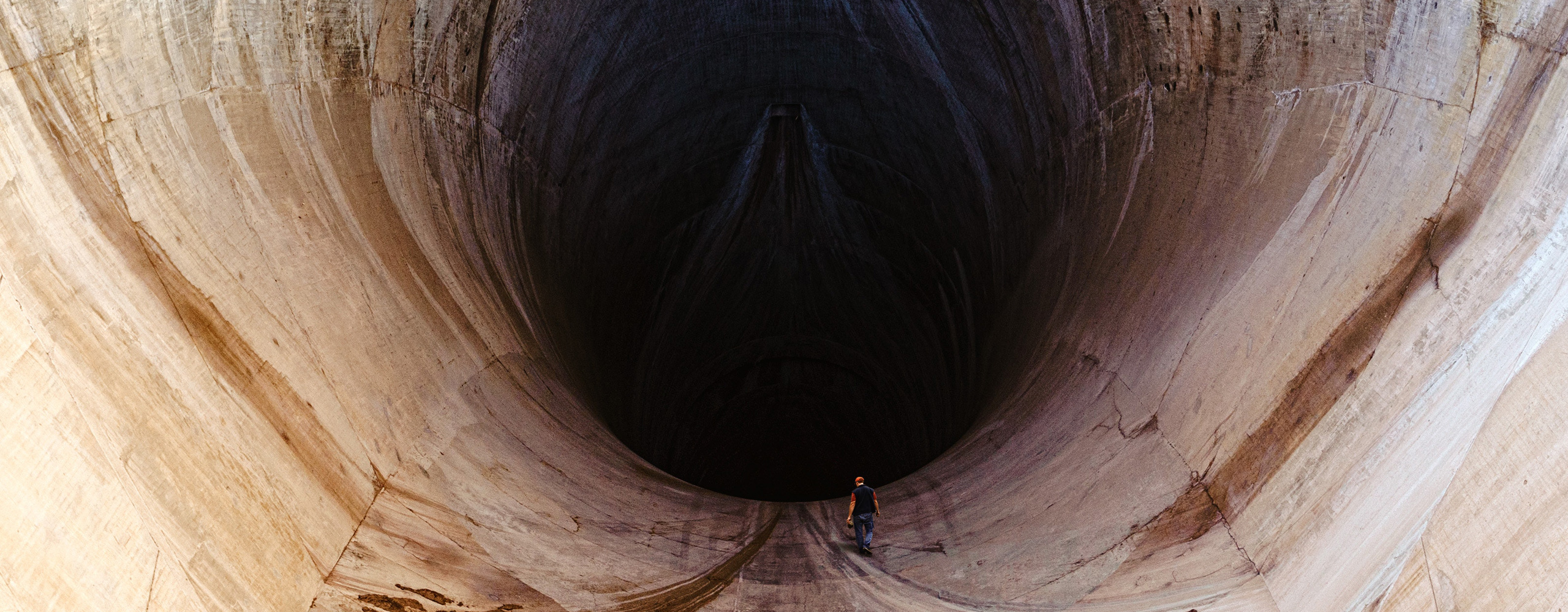Daniel was to work with soil, but an enthusiastic teacher got him interested in rocks. One pizza party at Itasca lead him right into an exciting thesis where he gets to test the rock’s limits.
In Daniel Nygård’s workroom stand boxes full of rock samples. These are drill cores which he now examines as part of his thesis work.
At first, he was supposed to study soil mechanics, just like his little brother. But when Daniel Nygård opened his eyes for the rock’s exhilarating challenges he fixed his gaze towards it. When he also got a teacher that, during their lectures, really gave life to the rock it was a done deal.

The rock mass came to life
– I had a very enthusiastic and fun teacher at the Luleå University of Technology. Now she has become my colleague, says Daniel and explains that Catrin Edelbro could talk about rock in a way so captivating that the decision became easy.
– To work with rock offers many possibilities, in addition to working in mines there are so many tunnel projects you can hardly count them – and we have the whole world as work field. This is something that tempts me, Daniel says, who at the moment is doing his thesis work at Itasca.
Laboratory testing
It was during the pizza party at the company, that he fell for the opportunity to explore how the rock in the LKAB mines behaves after failure at very large depths.
– I deliver input data that can be used for numerical analyses and calculations for future excavations and drifts. This is based on the rock samples I have collected from the mine and that will be tested in the laboratory. I like that the thesis work is both theoretical and practical and that I get challenged with difficult tasks.
What awaits you after the thesis work is finished?
– To me, the dream job is at the consulting companies, where I could get to work with everything from exciting problems in mines to tunnel projects with no standard solutions.
